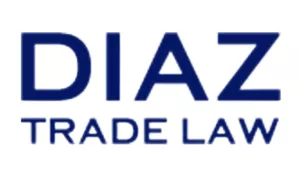- with readers working within the Retail & Leisure industries
On August 14, 2025, The Census Bureau issued a final rule to clarify its regulations governing in-transit shipments from foreign countries through the United States that are subsequently exported to a foreign destination. The rule takes effect September 15, 2025.
Background
The Census Bureau is responsible for collecting, compiling, and publishing import and export trade statistics for the United States. As part of this responsibility, the Census collects Electronic Export Information (EEI) in concert with the export control and enforcement functions of U.S. Customs and Border Protection (CBP) of the Department of Homeland Security (DHS), the Bureau of Industry and Security (BIS), and the Directorate of Defense Trade Controls (DDTC).
Public Law 107-228 directed the Census to publish regulations requiring exporters to file Shippers' Export Declarations. As a result, the bureau experienced an increase in the number of inquiries regarding in-transit movements. Accordingly, in October of 2024 the Census solicited comments on a proposed rule to clarify its regulations governing in-transit shipments. The bureau received 11 letters and emails commenting on the proposed rule.
Key Changes
In addition to making definitional, grammatical and style changes, the rule: (i) clarifies who is the USPPI; (ii) makes changes to mandatory filing requirements; (iii) makes changes to voluntary self-disclosures.
Who is the USPPI
The U.S. Principal Party in Interest (USPPI)is the person or legal entity in the United States that receives the primary benefit, monetary or otherwise, from an export transaction. The rule clarifies which party is the USPPIwhen goods are entered into the United States for consumption or warehousing then stored in a warehouse or storage facility, admitted into an FTZ, or entered into a bonded warehouse before exportation.
When these movements occur prior to exportation, the USPPI may be one of the following:
- A customs broker
- An operator of the warehouse, storage facility, FTZ, or bonded warehouse
When the customs broker is the USPPI and supports the preparation or filing of the EEI, the customs broker must have consent from the importer of record to disclose confidential information to third parties. When a warehouse, storage facility, FTZ or bonded warehouse operator is the USPPI, they are responsible for the EEI based on information they have or have received from other parties to the export transaction.
Changes to Filing Requirements
The Rule makes several changes to the mandatory filing requirements for EEI.
The rule clarifies that an EEI filing is not necessary when goods are moving in-transit through the United States, Puerto Rico, or the U.S. Virgin Islands from one country or area to another where goods do not enter the United States for consumption or warehousing.
It also amends the "General Filer Requirements" to clarify that that the filer must be located physically in the United States when filing the EEI, and that the EEI must be filed completely, accurately, and timely.
Voluntary Self-Disclosure
The rule clarifies that foreign persons may not submit a Voluntary Self-Disclosure (VSD) and states that parties will not be deemed to have made a VSD unless the individual making the disclosure did so with the full knowledge and authorization of senior management. The Bureau will not accept a disclosure from aForeign Principal Party in Interest (FPPI) or legal counsel or other party representing a FPPI.
The rule also amends the Census Bureau's actions when responding to a VSD. The Bureau is no longer required to notifyCBP, Immigrations and Customs Enforcement (ICE), and the Office of Export Enforcement (OEE) of the receipt of the VSD. In addition, the rule relaxes the requirements for the Bureau when issuing a letter in response to a VSD. Instead of issuing a warning letter or letter setting forth corrective measures required, the Bureau may now simply issue a letter.
All importers and exporters involved in in-transit shipments should review the rule and ensure their internal processes and procedures are updated accordingly. Get in touch with Diaz Trade Law to learn more about how this new rule may impact your business: 305-456-3830 and info@diaztradelaw.com.
Learn more:
- Census Proposes Changes to Foreign Trade Regulations Filing Requirements
- Submitting a Voluntary Self-Disclosure to Census
- Webinar:What is Electronic Export Information (EEI) and Why Does it Matter?
- Webinar:Building and Maintaining an Effective Export Compliance Plan
The content of this article is intended to provide a general guide to the subject matter. Specialist advice should be sought about your specific circumstances.
[View Source]

